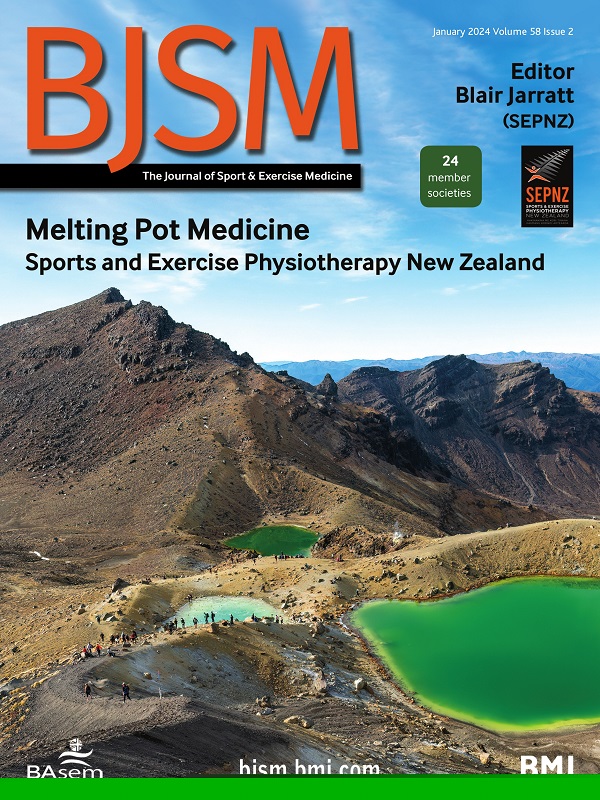运动与心理健康:至关重要的联系
IF 11.6
1区 医学
Q1 SPORT SCIENCES
引用次数: 0
摘要
近年来,体育锻炼与心理健康之间的联系受到了主流科学界的广泛关注,这也是体育运动 治疗师可以发挥积极作用的一个领域。1 2 经常进行体育锻炼能显著减轻抑郁、焦虑和压力症状,同时增强认知功能和自尊心。3 运动可通过改变神经递质和神经营养因子来改善心理健康,从而降低异位负荷,改善情绪、情绪调节、认知能力和抗压能力。运动可增加脑源性神经营养因子(BDNF)的产生,这是一种与学习和记忆有关的关键脑区神经元存活和增殖所需的蛋白质。5 这种生化级联可改善大脑功能和情绪健康,同时还可形成正反馈循环,提高持续体育锻炼的动力,从而扩大心理健康的优势。慢性压力如果得不到治疗,...本文章由计算机程序翻译,如有差异,请以英文原文为准。
Exercise and mental health: a vital connection
In recent years, the link between physical activity and mental health has gained significant attention in mainstream science, highlighting an area where sport and exercise therapists can make a positive impact. While commonly associated with physical fitness, exercise also profoundly benefits mental health.1 2 Regular physical activity significantly reduces symptoms of depression, anxiety and stress while enhancing cognitive function and self-esteem. Even a single bout of exercise can reduce anxiety, and short-term engagement can buffer against stress-induced negative mood states.3 Exercise improves mental health by altering neurotransmitters and neurotrophic factors, which may decrease allostatic load and improve mood, emotional regulation, cognitive performance and stress resilience.4 It may also promote brain health through gut bacterial metabolites. Exercise increases the production of brain-derived neurotrophic factor (BDNF), a protein required for the survival and proliferation of neurons in key brain areas associated with learning and memory.5 This biochemical cascade improves brain function and emotional well-being while also creating a positive feedback loop that increases motivation for continuous physical activity, extending the mental health advantages. Chronic stress, if left untreated, …
求助全文
通过发布文献求助,成功后即可免费获取论文全文。
去求助
来源期刊
CiteScore
27.10
自引率
4.90%
发文量
217
审稿时长
3-8 weeks
期刊介绍:
The British Journal of Sports Medicine (BJSM) is a dynamic platform that presents groundbreaking research, thought-provoking reviews, and meaningful discussions on sport and exercise medicine. Our focus encompasses various clinically-relevant aspects such as physiotherapy, physical therapy, and rehabilitation. With an aim to foster innovation, education, and knowledge translation, we strive to bridge the gap between research and practical implementation in the field. Our multi-media approach, including web, print, video, and audio resources, along with our active presence on social media, connects a global community of healthcare professionals dedicated to treating active individuals.

 求助内容:
求助内容: 应助结果提醒方式:
应助结果提醒方式:


